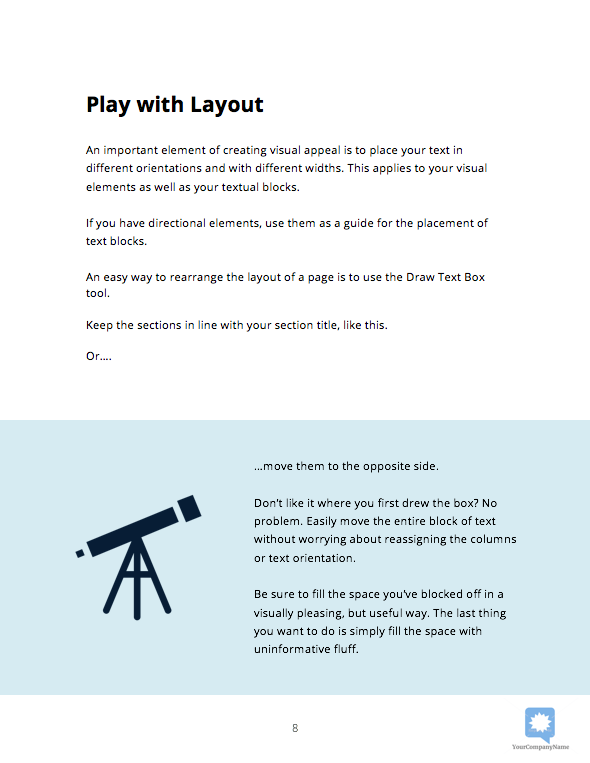Here’s a cruel reality check about writing an eBook: Brands and businesses of all shapes and sizes are just chomping at the bit to cash in on the more than 20 billion U.S. dollars of revenue this industry is projected to generate in 2018.
This is hardly surprising since utilizing content marketing strategies yield three times more leads than paid advertising. With 63% of buyers voluntarily giving out their information in exchange for an eBook, this particular tactic has transformed into one of the most cost-efficient ways to monetize your website.
With eBooks poised to dominate approximately a quarter of book sales globally, isn’t it about time for you and your business to cash in on this growth?
Long-Form Content Provides High Value
Sure, writing an effective and meaty asset—think eBooks, white papers, benchmarks, and the like—has the potential to earn you constant leads and engagement with your audience. Good content means funnel movement, plain and simple. But that’s not it.

Writing an eBook will position you as a trusted authority in your niche. Successful authors are frequently sought after for interviews. Their opinions are often quoted in articles and studies, with their works regularly cited as credible sources in research as well. In a nutshell, a well-written eBook has the capacity to turn you into a trusted expert in the industry.
Remember, 96% of B2B customers put a premium on content produced by industry leaders. This is why businesses are working overtime to create content that their readers would find relevant. Putting in the time and effort to publish content on your website translates to higher search engine-indexed pages by a whopping 434%!
So, how will this translate to your sales?
Simple. If your target audience trusts your word, then they would undoubtedly trust your brand. By proxy, they trust your offering.
The second reason leans more on customer service. Writing eBooks—useful and data-driven ones—can help many people in your industry. In any case, most money-making eBooks are those that respond to the lack or even absence of reliable information on particular niches.
In a word, a well-written and researched eBook can assuage the hunger for knowledge in an industry.
Therefore, a worthwhile reason to write an eBook is to impart knowledge and information to those who seek to learn more about your business. As an expert in your field, the wisdom and expertise you share with your readers are more than enough to help them advance in their learning. Besides, what’s more fulfilling than knowing that your work can inspire and help others to reach their goals?
How to Write an eBook
Writing an eBook can be a daunting task for anyone to handle. This post will provide you with some tips on how you can successfully create material that could catapult you to the top. For a more comprehensive and in-depth discussion, simply download our handy guide here.
1. Determine Scope of Topic
This step requires you to answer at least three questions:
- Where is your authority and knowledge?
- What content will your target readers find relevant and beneficial?
- How can you make your approach as original as possible?
Generally, the most highly appreciated eBooks use personal stories to impart knowledge and wisdom to their target audience.
This type of storytelling is more engaging to the majority of readers because they usually include useful life lessons and memorable anecdotes. It also bolsters your authority on the subject simply because you’ve lived the experience rather than merely quoting different sources. Lastly, personal stories forge empathy between you and your readers as these signify sharing a part of yourself with them.
An efficient method to determine the topics your target audience prefers is to check out competitor websites and social media pages with similar offerings. Based on the number of shares, likes, and comments, you can easily gauge how to best present your information.
2. Meet Your Reader Where They Are
One of the most important factors in creating eBooks is readability. Make sure that the information you present can be easily understood. Always keep in mind that the average attention span of readers is now down to a measly eight seconds—with the number decreasing by 88% every year thanks to technology.
Take a moment to fully understand the implications of these numbers and how these should translate to your eBook. This means that your readers no longer have the patience (or desire) to read chunks of paragraphs.
Actually, even those willing to read long posts get turned off when you present your ideas in a long and winding fashion.
To add appeal to your eBook, use colorful and attractive images. Take into account that people remember only roughly 10% of what they read three days after. However, inserting a relevant picture boosts their retention rate to 65%.
3. Don’t Start from Scratch
The biggest mistake you could make in any kind of content creation is forsaking the past work you’ve done. Build your eBook from content that resonates—infographics, blogs, and the like.
Plus, take it from someone who’s been there before—working from a template can make the process much less daunting. That’s why we’ve crafted a template that’s stocked with not only design elements but also tips and tricks to make your eBook engaging and appealing. Check out this page from our eBook Template:

Want to customize that page? Download the template here.
Final Thoughts
As content creators pushing another asset into a saturated market, we must be more strategic when it comes to eBooks. After all, a successful eBook journey does not end the moment you publish the material. If anything, it’s only the beginning of your marketing and sales adventure.
For one, you will have to promote your eBook across various marketing channels. When you’re done with this step, you’ll also need to gather data and assess your analytics to determine the success of your published work. You’ll have to constantly monitor your live product – not to mention continuously promote it to ensure that you get a steady stream of sales.
While you can handle these steps on your own, you should be extremely careful of how to execute your plans. Besides, you don’t want to waste all that time and energy you spent on your eBook by botching the promotion phase.


